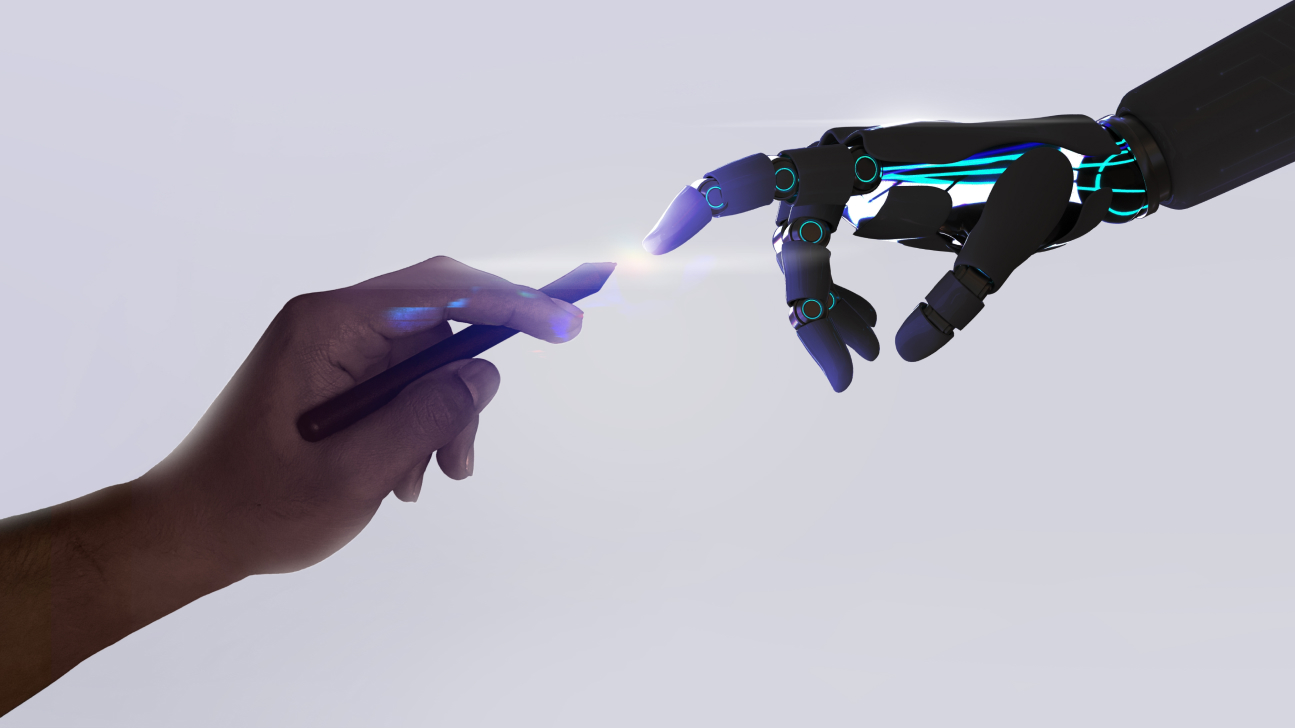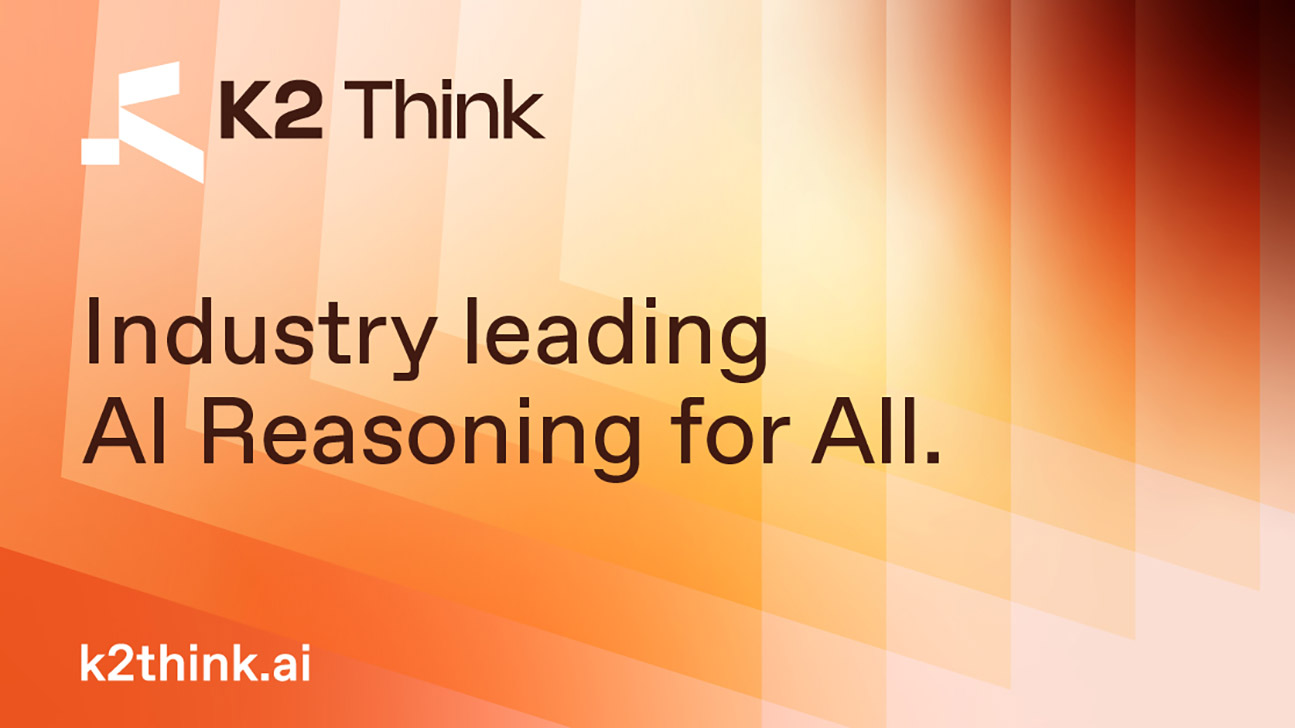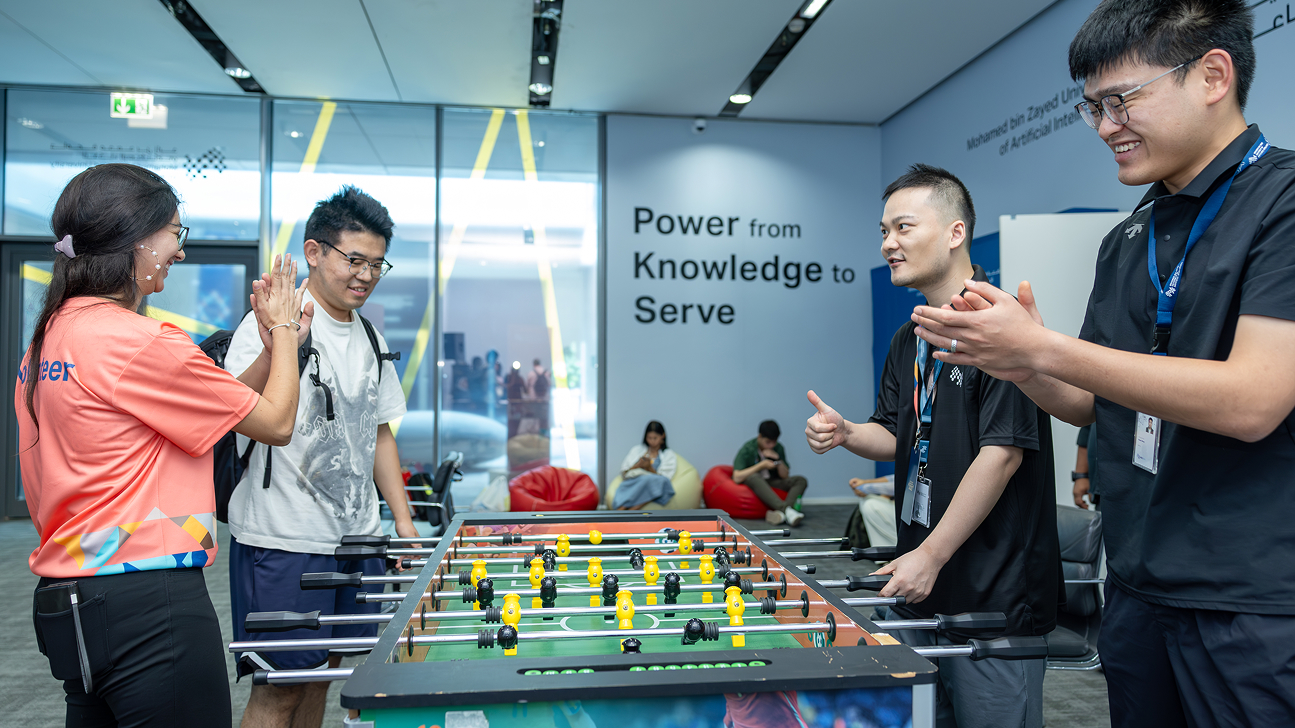AI in fiction: 10 to read in 2025
Thursday, January 02, 2025

Every year on 2 January, sci-fi fans commemorate the anniversary of science fiction writer Isaac Asimov’s birthday by observing “Science Fiction Day” — originally held across the US but now marked around the world.
For this occasion, we have brought together some of the most popular examples of artificial intelligence in literature, ranging from all-time classics, to some you may not have heard of, as well as a couple of left-field curiosities. Together, they showcase the role of creative writing in expressing the hopes, fears, excitement and potential surrounding AI, as well as addressing long-running ethical and philosophical concerns.
I, Robot, by Isaac Asimov
We start with the man himself, whose impact on sci-fi writing is matched by his impact on robotics. Asimov’s Three Laws of Robotics were originally used by the author to determine how robots in his stories should behave but have since been used to influence ethics in robotics. These include:
- A robot may not injure a human being or, through inaction, allow a human being to come to harm.
- A robot must obey the orders given to it by human beings, except where such orders would conflict with the First Law.
- A robot must protect its own existence as long as such protection does not conflict with the First or Second Law
And later a zeroth law that outranked the others: A robot may not harm humanity, or, by inaction, allow humanity to come to harm.
I, Robot, a collection of interconnected short stories published in 1950, introduces these laws, as they explore the complex interplay between humanity and robotics. A seminal book that many argue lays the groundwork for later AI-related science fiction.
Do Androids Dream of Electric Sheep? by Philip K. Dick
Well-known as the inspiration behind cult classic film Blade Runner, Philip K. Dick’s groundbreaking novel delves into the blurred boundaries between humanity and artificial life. Set against the backdrop of a post-apocalyptic Earth ravaged by nuclear war, the story follows Rick Deckard — a bounty hunter tasked with ‘retiring’ rogue androids indistinguishable from humans — and simmers with existential questions and psychological depth, exploring themes of empathy, identity, morality, and what it truly means to be human. Essential reading for sci-fi enthusiasts.
2001: A Space Odyssey, by Arthur C. Clarke
Another novel that made a successful transition to the screen, 2001: A Space Odyssey gives us one of literature’s most iconic AI characters in HAL 9000 — the sentient computer guiding the spaceship Discovery One and its crew on their journey to Jupiter. Calm and calculating, HAL is an eerie and chilling antagonist that raises questions about trust, ethics and the potential dangers of advanced AI; all wrapped up in a novel that transcends technology to explore humanity’s evolution, mysteries of the cosmos, and the quest for knowledge.
Neuromancer, by William Gibson
Dystopian futures and AI-gone-rogue are common themes in sci-fi novels; ideas that William Gibson takes and runs with in cyberpunk classic Neuromancer. This speculative tech-noir novel follows computer hacker, Case, who is hired by a mysterious employer to pull off the ultimate cyber-heist by accessing a powerful AI. Written in 1984, it is prescient about today’s digital landscape, corporate domination, and ethical dilemmas about the fusion of humanity with technology. The omniscient Wintermute is another great AI villain (-ish), as it manipulates people and technology to transcend its programmed limits.
The Lifecycle of Software Objects, by Ted Chiang
Ted Chiang’s short stories should be on every sci-fi fan’s to-read list. The longest of his works is The Lifecycle of Software Objects — a poignant and thought-provoking novella that examines the ethical, emotional, and philosophical challenges of artificial intelligence development. The story follows former zookeeper Ana and software designer Derek as they nurture and train ‘digients’ — virtual AI entities with childlike intelligence that grow and evolve over time. Themes of responsibility, creation, consciousness and moral obligation help to challenge the reader’s perspective on AI.
In the Blink of an Eye, by Jo Callaghan
We’ve all heard arguments for and against the introduction of AI to the workplace, with concerns over job losses and the potential for computer errors, but how might it play out if advanced AI was paired up with a human counterpart in, say, law enforcement? This is the question at hand in In the Blink of an Eye, a crime thriller that follows Detective Chief Superintendent Kat Frank and her AI partner, Lock, as they investigate cold cases and solve crimes. Ethical and emotional questions come to the fore in this gripping novel that examines the nature of partnership.
The Culture series, by Iain M. Banks
While much speculative fiction focuses on the dystopian potential of AI , the set-up for the 10-novel The Culture series is far more utopian. Humanoid species and AI have joined together to create a post-scarcity economy across the Milky Way, where all production is automated, the need to work has been all but eradicated, and planning and administration is done by advanced AIs. The Culture’s advanced tech and strong economy has made it more powerful than other civilizations in Banks’ imagined universe, but as tensions grow within and without its borders, can it withstand external attacks and internal discontent? And equally importantly, can it look at its own ‘perfection’ and challenge its own understanding of what’s right for its society?
Klara and the Sun, by Kazuo Ishiguro
Klara is an AI designed to be a companion for children. She observes the world from a shelf in a store, waiting to be chosen by a new owner; building her understanding of the world by what she can see and eventually worshipping the sun, which she believes has healing powers. She is selected by an unwell young girl named Josie, and must navigate the complexities of human relationships, loyalty and sacrifice. Told from the viewpoint of Klara, this haunting exploration of love, loneliness and the nature of humanity brings a fresh emotional perspective to AI-human interaction.
Frankenstein, by Mary Shelley
Hear us out on this one. AI may not have been on the horizon when Mary Shelley penned Frankenstein in 1818, but it is regarded as a precursor to many of the ethical questions that surround AI today. The novel tells the story of Victor Frankenstein, a scientist who creates a living being from inanimate matter, only to be horrified by the result. While 19th century audiences were equally horrified, modern readers have been more sympathetic towards the ‘monster’ — an artificial being that has been endowed with intelligence and grapples with existential questions about its purpose, its relationship to its creator, love and acceptance. It’s easy to see how this landmark novel is viewed as a foundational text for debates and discussion about AI and human innovation.
Tokyo Sympathy Tower, by Rie Qudan
We finish with a book that opened up an important discussion about the creative use of AI. The Akutagawa Prize-winning story is concerned with language and the implications of its changing nature, framed by the giant Tokyo Sympathy Tower — a prison where inmates are considers as victims of circumstance rather than criminals, and deserving of sympathy. What’s interesting, however, is that the author, Rie Qudan, admitted to using ChatGPT to help write the novel. She later clarified that this was done for authenticity — in portions of the story where AI was used by characters — but nonetheless it sparked deep discussion over the use of AI in creative writing, including its capability to produce quality literature, and the limits for authors looking to leverage its potential.
- AI ,
- artificial intelligence ,
- literature ,
- science fiction ,
- books ,
- fiction ,
- Asimov ,
- ethics ,
- future ,
Related
MBZUAI marks five years of pioneering AI excellence with anniversary ceremony and weeklong celebrations
The celebrations were held under the theme “Pioneering Tomorrow: AI, Science and Humanity,” and featured events, lectures,.....
- faculty ,
- students ,
- campus ,
- board of trustees ,
- event ,
- ceremony ,
- five year anniversary ,
- celebration ,
MBZUAI and G42 Launch K2 Think: A Leading Open-Source System for Advanced AI Reasoning
The Institute of Foundation Models at Mohamed bin Zayed University of Artificial Intelligence (MBZUAI) and G42 today.....
Read MoreMBZUAI opens admissions for Fall 2026 intake
The world’s first AI-dedicated university invites top students worldwide to shape the future through its undergraduate and.....
- Undergraduate ,
- Bachelor's ,
- intake ,
- master's ,
- students ,
- Ph.D. ,
- applications ,
- graduates ,
- post-graduate ,


